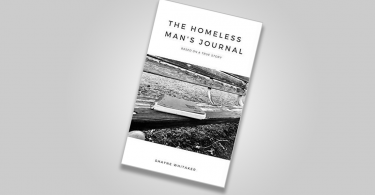When I first saw the hash-tag #Readwomen2014, encouraging people to read books by only female authors, my first thought was of the no-doubt vehement Twitter reaction had it been #Readmen2014 that w
When I first saw the hash-tag #Readwomen2014, encouraging people to read books by only female authors, my first thought was of the no-doubt vehement Twitter reaction had it been #Readmen2014 that was trending. Had a male writer set up a campaign urging people to prioritise books written by men over books written by women, cries of discrimination and sexism would have flooded the Twitterverse.
But that didn’t happen, because campaigns aren’t needed to make people read books by male authors—it happens anyway.
In 2012, statistics released by literary analysis organization VIDA, showed that works written by women accounted for only 23 per cent of reviews in The Nation, 25 per cent of reviews in The Times Literary Supplement, and just 22 per cent of reviews in The New York Review of Books.
A brief search on The Guardian’s literature section sadly, backed these figures—I found six reviews: five for books by male authors, one for women…not a great ratio.
Fed up with this bias towards male authors, British writer Joanna Walsh has launched #Readwomen2014, a Twitter campaign to promote female literature.
So, here goes. (Champagne bottle on ribbon, letting go…) I declare @readwomen2014 open! #readwomen2014
— Joanna Walsh (@badaude) January 24, 2014
#ReadWomen2014: A hashtag becomes a movement. http://t.co/hlGxiH4XHm by the brilliant Joanna Walsh as ‘Badaude’ @http://bit.ly/KZXYNk
— Annabel Huxley (@annabelhuxley) January 25, 2014
Discussing why she started the campaign, Walsh said: “I’ve listened to female writer friends grouse when their books are given flowery covers though their writing is not; when reviews, or even publishers’ press releases, describe their work as ‘delicate’ when it is forthright, ‘delightful’ when it is satirical, ‘carving a niche’ when it is staking a claim.”
The prejudice is so strong in fact, that some women even publish their work under male pseudonyms in a bid to be taken more seriously. Perhaps most famous for this are the Brontë sisters, who all published their novels with male pen-names in the knowledge that, as women in the 19th century, their work would be overlooked.
Obviously, the level of bigotry is nowhere near as intense today as it was in the 1800s. However, it is also true that J.K. Rowling was told to use her initials rather than her full name when publishing Harry Potter, because “the target audience of young boys might not want to read a book by a woman.”
How absurd, that one of the most celebrated novelists of the last twenty years faced such shameless sexism, having penned a story now known and loved by over 450 million people. Twilight and The Hunger Games, arguably the most popular trilogies of the 21st century, were also written by women, and yet literary editors still continue with this gross, groundless imbalance.
One ‘Read Women’ Twitter supporter wrote of this:
Boys should read #Fangirl by Rainbow Rowell for eg – and if it was by John Green maybe they would. #readwomen2014
— Sarah Webb (@sarahwebbishere) January 22, 2014
True. Orwell’s 1984 is one of my favourite books, though I wonder, if it had been written by a Gemma Orwell, would it have been such a success? Perhaps not.
Similarly, Ayn Rand’s Anthem is a dystopia I read recently, that I believe rivals the likes of Aldous Huxley and Ray Bradbury, however is far less acclaimed. Possibly if it was written by an Andrew Rand, it would have been better promoted?
In the time it’s taken me to write this article, @ReadWomen2014 has doubled its followers. With thousands of people (including lots of men!) now getting involved, #ReadWomen2014 is off to an amazing start:
#readwomen2014 Starting with Iris Origo, Suzan-Lori Parks, Eleanor Catton, Josephine Machon and Lydia Davis. #bookstack
— Henry Hoke (@EnnuiPerkins) January 23, 2014
Starting my #readwomen2014 list with “The Likeness” by Tana French
— Olivia P. Gunn (@OliviaPGunn) January 23, 2014
I’m off to a good start with #readwomen2014 having just finished a book by Jhumpa Lahiri and starting ‘Krik Krak’ by Edwidge Danticat.
— Robert Woodley (@rwoodley) January 22, 2014
As I examine the bookshelf in front of me, the male to female divide is about 60:40, not bad I suppose. But I will certainly be participating in #Readwomen2014, kicking off with Margaret Atwood’s Oryx & Crake.
To get involved in #Readwomen2014, follow the Twitter page @ReadWomen2014, and check out this list of incredible books to start you off!
What do you think of the campaign? Have your say in the comments section below.








